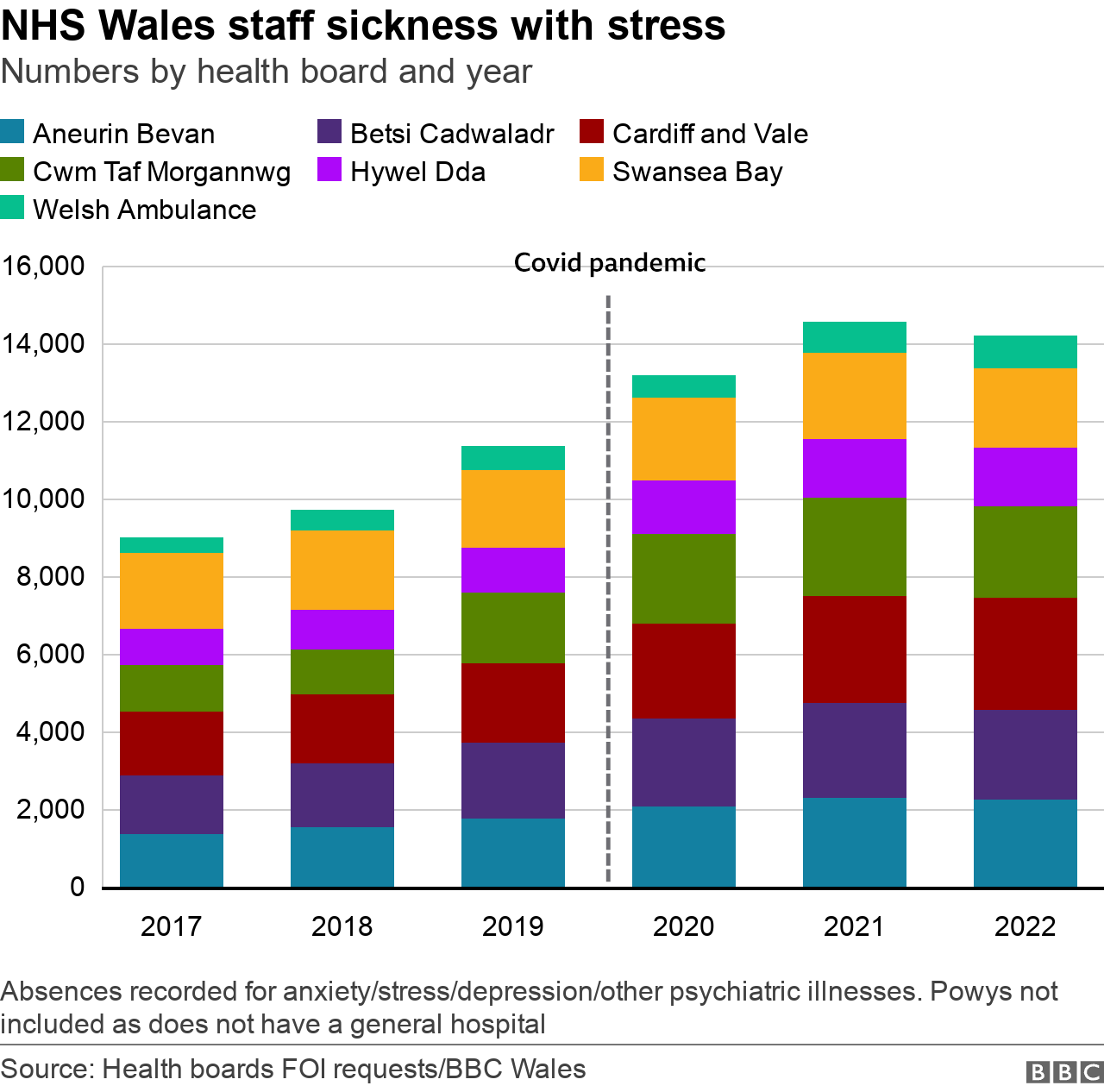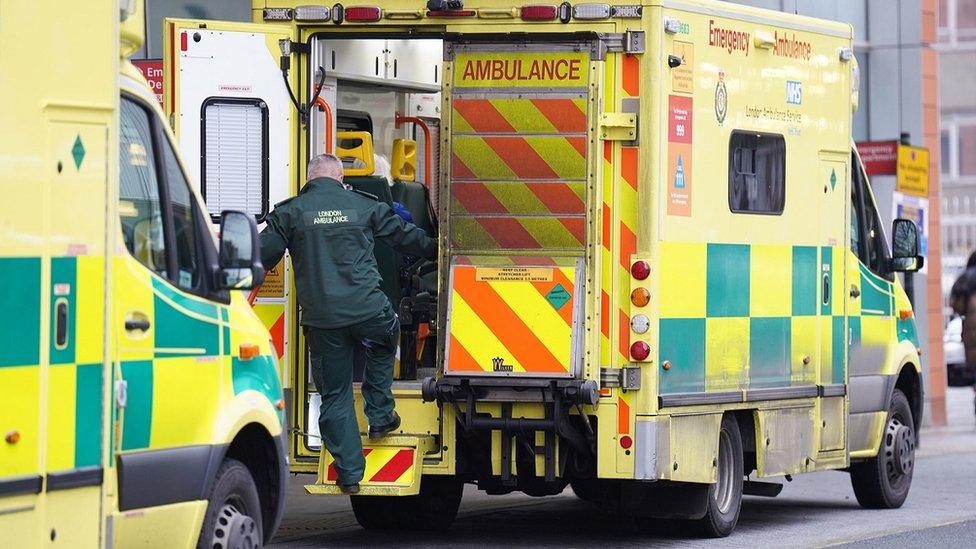NHS Wales: Up to a third of staff absence stress-related
- Published

Stress-related absence rose by more than 60% in four years
Up to a third of all staff sickness in NHS Wales is due to stress, depression or anxiety, figures show.
At its peak, in the aftermath of Covid, there were 14,500 staff absences due to one of these mental health conditions.
Figures obtained by BBC Wales suggest numbers have still not returned to pre-pandemic levels.
One union said the numbers were "sobering" and fatigue built up in recent years continued to place a strain on staff.
There were also 10,000 stress-related absences at five health boards and the Welsh ambulance service in the first nine months of 2023.
The six main health boards in Wales which have general hospitals and the ambulance service gave details in freedom of information request responses.
These showed up to 33% of all staff sickness was due to stress, anxiety, depression or other psychiatric illnesses.

Before the pandemic, about a quarter of absences were due to one of these mental health conditions.
In 2017, there were 9,023 mental health-related staff absences.
This rose to above 13,000 during the main pandemic year - and peaked at more than 14,500 in 2021, a 61% increase on four years before.
It had fallen back slightly in 2022 but remained high at more than 14,200.
Up to the end of September 2023, health boards reported it was continuing to fall, if slowly.
Aneurin Bevan health board reported 33% of staff absence was related to stress or anxiety in three out of the past four years.
Cardiff and Vale health board hit 31% in both 2020 and 2021.
Some nurses say the headsets have helped them to reset their sleep pattern
Overall, the average sickness rate at NHS Wales was 6.4% of all staff in the year to June, lower than the year before.
Welsh government statisticians say the long-term rate has been on a clear downward trend.
It had peaked during waves of Covid, ranging from 7.5% to 7.9% in the most infectious months.
Back in 2021, the auditor general for Wales pointed to the need to build on support for the mental well being of staff , external- saying "taking care of those who care for others is probably more important now than it has ever been before".
Unison Cymru/Wales regional organiser Tanya Bull said: "Rates of staff absence due to stress and other related illnesses are sobering, but probably not surprising.
"The NHS workforce bore the brunt of the pandemic, often putting themselves and their families at risk to deliver vital care to the people of Wales.
"Fatigue built up over the years of the pandemic continues to place strain on staff as they face new challenges.
"Coupled with the cost-of-living crisis, it is no wonder NHS staff continue to experience burn out and stress.
"There continue to be challenges with staffing and financial pressures on health boards and pay awards made to NHS Wales staff haven't kept pace with the increasing cost of living, creating additional worries for household budgets."
The Welsh government said it recognised staff were the backbone of the health and care service and thanked them for their continued efforts.
"We are committed to ensuring that staff can access proactive, high-quality support at the time which they need it most and are providing £1.5 million annually for the Canopi service which offers free and confidential expert psychological support for all health and social care staff across Wales, external," said a spokesperson.
It said it would continue to work with NHS health boards, trusts and trade unions to understand how it could provide targeted funding and services to complement the support offered by employers.
Related topics
- Published5 October 2023

- Published25 January 2021

- Published14 December 2023
